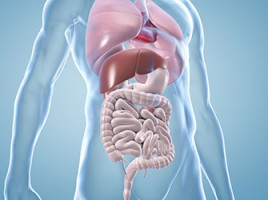
Recent research led by MD Anderson identified associations between neoadjuvant immune checkpoint blockade responses and B cells and tertiary lymphoid structures (TLS) in the tumour microenvironment.
In this study, researchers built upon the previous work, finding further unifying evidence for these novel biomarkers of response and identifying a relationship between gut microbes, B cells and TLS across three cancer types: melanoma, NSCLC and sarcoma.
“If these findings are confirmed, we’re hopeful that we could target cells in the tumour microenvironment through microbiome-directed therapies to increase B-cells and tertiary lymphoid structures in tumours and to enhance responses to immune checkpoint blockade,” said lead author Elise Nassif, M.D., postdoctoral fellow of Surgical Oncology.
Nassif received the GlaxoSmithKline Oncology Endowed Merit Award from the Conquer Cancer Foundation for the abstract.
The research team pulled data from three randomized Phase II neoadjuvant immune checkpoint blockade clinical trials led by MD Anderson and designed with similar protocols for specimen collection and timing: NCT02519322 (melanoma; 23 patients), NCT03158129 (NSCLC; 33 patients) and NCT02301039 (sarcoma; 17 patients).
A total of 22 patients’ cancers responded to treatment, based on the major pathological response criteria.
When team members analysed the gut microbiome signatures and transcriptome data, they found that high pre-treatment levels of Ruminococcus were associated with response across cancer types.
High levels of B cell infiltration and TLS formation at surgery (after immunotherapy) also were associated with response across cancer types.
Longitudinal data showed that B cells and TLS increased over the course of immunotherapy treatment in responders, but not in non-responders, and that this increase correlated with a gut microbiome signature that included high levels of Ruminococcus at baseline.
B cells and TLS did not change in patients with low levels of Ruminococcus before treatment.
"The ideal should be to learn something from every patient, particularly for rare diseases,” said senior author Christina Roland, M.D., associate professor of Surgical Oncology.
“This study shows that we can really learn a lot from very small numbers of patients in well-designed clinical trials, even across multiple diseases, and that’s critical to making big strides in cancer care.”
Source: MD Anderson Cancer Center
The World Cancer Declaration recognises that to make major reductions in premature deaths, innovative education and training opportunities for healthcare workers in all disciplines of cancer control need to improve significantly.
ecancer plays a critical part in improving access to education for medical professionals.
Every day we help doctors, nurses, patients and their advocates to further their knowledge and improve the quality of care. Please make a donation to support our ongoing work.
Thank you for your support.